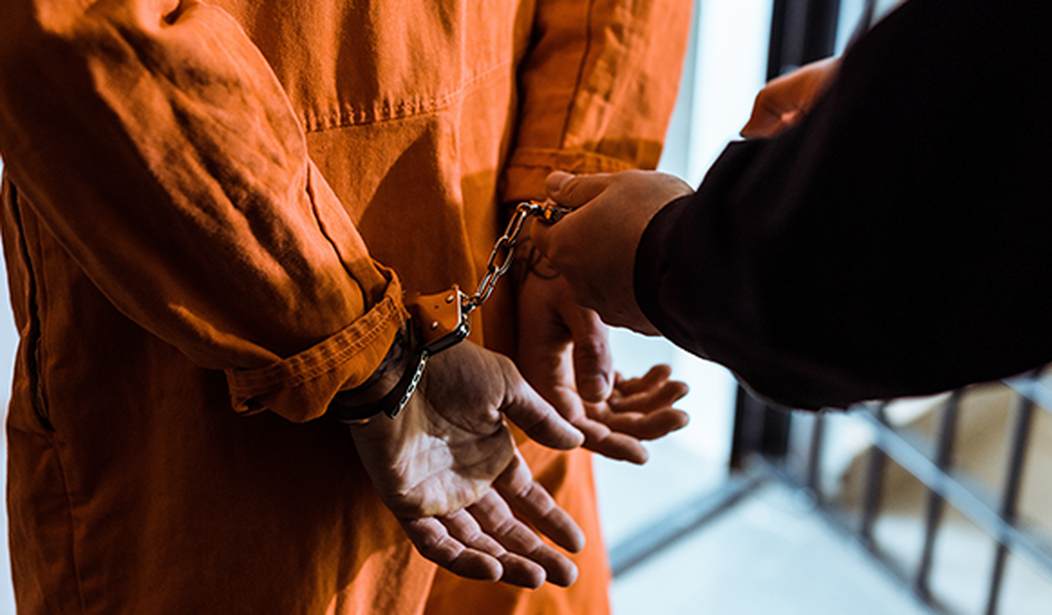Over the last few years, there appear to have been a number of particularly boneheaded ideas started to fly around with regard to criminal justice.
Many of those are predicated on faulty ideas like Critical Race Theory, which basically assumes every aspect of our legal system is steeped in racism.
One of the ideas floated around this time is "restorative justice."
And it seems the District of Columbia hired an official who fully and completely embraced this idea a while back.
A government bureaucrat boasted about implementing a program based on an "ancient indigenous practice" at the Washington, D.C. attorney general's office to allow some young criminals, who committed stabbings and hate crimes, to avoid jail time.
Seema Gajwani was hired in 2015 by the D.C. attorney general as special counsel for Juvenile Justice Reform. Gajwani used her position to implement a restorative justice program, which was created in 2017 to address racial inequities in the criminal justice system. Restorative justice emphasizes the rehabilitation of the perpetrator of the crime by seeking reconciliation with the victims. One practice is often a conversation between the perpetrator and the victim, if the victim consents.
The D.C. office's program, which used restorative justice for a few hundred cases, excludes youth who committed homicide, sexual assault or domestic violence from its program.
And, now, let's be fair for a moment. Those three exceptions make sense. After all, it's not possible for a perpetrator to sit down with his victim in the case of a homicide, it's traumatic as hell to even ask that of a sexual assault victim, and domestic violence victims are often manipulated by their abusers.
So those are valid exemptions if you buy into the idea of restorative justice.
Yet the question is, does it actually work?
"We have successfully used restorative justice in stabbing cases, in carjackings and burglaries, all instead traditional prosecution," Gajwani said about her work as the program's chief during a 2021 webinar. "We are focusing on serious violent crime."
"So now our restorative justice program has caseloads that consist of robberies, gun offenses, and even serious assaults," she continued.
From around the time the program was implemented, carjackings, for example, jumped annually from 148 in 2018 to 958 in 2023, according to data from the Metropolitan Police. However, burglaries, hate crimes, and assaults with a deadly weapon steadily dropped over that same time period. The data includes crimes committed by both adults and juveniles.
So most of the crimes dropped, but since there doesn't seem to be any indicator of what happened with juvenile crimes versus adult crimes, it's pretty hard to tell if "restorative justice" worked at all.
Especially as it didn't do anything to drop the number of carjackings in the district.
Now, understand while "restorative justice" may be predicated on CRT, if it works, I don't care. Things may work in spite of a faulty premise, after all, because while the premise is wrong, the mechanism itself is still valid.
The problem here is that we don't know if it works or not. There's no evidence really showing that it does, at least not that was presented to Fox News. That means we're seeing tax dollars go toward a process that may traumatize victims even further without actually causing a reduction in violent crime.
Granted, even if we did know juvenile crime was dropping, it wouldn't automatically means "restorative justice" worked, but it would at least be suggestive that it did.
Yet even if it does work, there's still a problem.
During the 2021 webinar, Gajwani explained there was a "weird situation" in D.C. in which most of the kids arrested for crimes are "kids of color."
"None of the kids in the system are White kids, frankly," she said. "Restorative justice is an antiracist way to hold people accountable for committing crime."
"We are seeking public safety and also to undermine some of the systemic racism that exists in our justice system. And so I think it's actually quite hopeful that there is a real conversation about restorative justice, both for hate crimes, [and]… criminal justice in general," she added.
Maybe it's just me, but this sounds like a two-tier justice system for juvenile offenders. If "restorative justice," as a process, works, then why not use it on kids equally?
Honestly, this alone is enough reason to oppose it, even if it does work.
What we have is a system in place in the District of Columbia that allows violent juveniles to be back on the streets without actually being punished, but is only available to some parties based on race.
How is this different than Sheriff Good Old Boy letting the white kids go and throwing the book at the black kids? It was wrong then and it's wrong now.
Either it works and should be applied across the board--which assumes facts not in evidence--or it doesn't work and shouldn't be applied at all. It's just that simple.








Join the conversation as a VIP Member